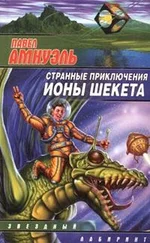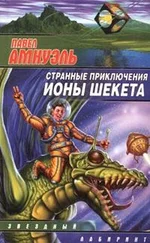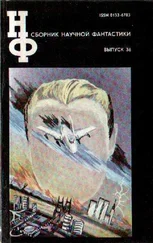In all my years of work I’d refrained from saying anything that would identify me with the missionaries, but now, seeing the tremble of her chin, I heard their words of consolation coming from my mouth. So be it. In any event, my work had come to an end.
“I know what you think, what they’ve told you. Lots of misunderstandings and rumors circulate in the Preserves. Listen to me, I promise you that no harm will come to the children.”
“Do you mean that you won’t take them?” the savage princess asked in a soft, strange voice. “That the decision has been revoked?”
“Decisions aren’t my field. People like me don’t make policy. What I want to explain to you is another matter. Maybe you think that accelerated growth will shorten this offspring’s life. Believe me, woman, that’s a mistake. Whoever told you that was either wrong or lying. Our life span is no shorter than yours. Actually, the opposite is true: progress gives us a longer life. If your son is ultimately given over to AOG, he won’t lose even a single day. On the contrary, he can enjoy all the years before him as an independent adult. You’ll see your son’s children, and your descendants will inherit the planets.”
The savage woman twisted her jaw to the side. “You think we’re stupid.”
The Slows have manners of their own. You can’t expect them to behave like us. Still, in her present situation I would have expected her to make an effort. But the very fact that she wasn’t making an effort held my interest. Perhaps this was an opportunity for me to hear something new. Usually they were so cautious when speaking to us and behaved evasively, even with me.
But just at that moment the larva started to bleat, and the savage woman instantly lost her impertinence.
“You may do it,” I said to her. “Pick it up. I’ve been in the Preserves for years, and I’ve seen such things.”
Without looking at me, she freed the larva from the carrier and held it to her chest. I observed six of my offspring during the process of accelerated growth, and the distress of the first weeks, before they reached decent maturity, comes back to me every time I’m forced to observe a human larva up close. There are times in a person’s life that are meant to be private, and the state of infancy is certainly the most pronounced of these. The larva was silent for a moment, then it started to bleat again.
“How old is it?”
“Eleven weeks.” The most horrifying human larvae are the big ones, which already look like people but lack the stamp of humanity. At least this one was similar in dimensions to our offspring. Nearly three months old. He could have been a productive adult already. Footsteps could be heard outside, and the sound of two people talking. The savage woman’s eyes widened. She put her hand first to her mouth and then to the larva’s open mouth.
“Don’t worry. They won’t come in here. They know that I hold interviews.” The touch of the woman’s hand on the creature’s lips increased its discomfort, and now it raised its voice, screeching until its wrinkled face turned almost purple. Someone was liable to enter after all. The savage woman stuck a finger into the larva’s mouth, but it turned its head away and looked for something else.
“Don’t you feel sorry for it?” I asked, but she seemed not to hear me, cradling the larva in her arms and also turning her head here and there with an unfocussed look in her eyes.
Human beings as we know them are excited by every development in their offspring, because what purpose is there for the hard labor of parenthood if not to send forth an independent, productive adult who can satisfy his own needs? But the Slows appeared to enjoy the helplessness of their larvae—the lack of humanity, the deplorable fervor of the little creatures, their muteness, their mindless appetites, their selfishness, their ignorance, their inability to act. It seemed that the most disgusting of traits were what inspired the most love in savage parents.
The screeches stunned me. I was so riveted by the sight of that wriggling caterpillar that I almost missed the moment when the woman started talking again. “If we knew how much time was left for us….” So she didn’t know everything: the invasion would start that day; it might already have begun. “If we knew that we had another year or two, if you would only tell us how much time there is, people could prepare themselves.” Had she come as a spy? If they greeted the police with violence, they’d only bring disaster down upon themselves. A few spontaneous uprisings were to be expected. After all, theirs was a volatile culture. But an organized attack would be a kind of stupidity that was hard to fathom.
“I’m asking for so little,” the savage woman said. “Just this—to know how much time remains for us. Listen to me. I know you’re different from them. You’re not a missionary. You know us. You’re merciful, not like them. I feel it. You could have called the guards when you saw me here, but you didn’t do it. Maybe you once also had a baby you loved.”
The larva arched its body backward, and the woman unconsciously fingered the opening of her shirt. Suddenly I knew what she wanted to do, and with that thought the sourness of the coffee rose in my throat. To give it her milk bulges—that’s what she wanted, that’s why she was plucking at her shirt. When I was a student, I was forced to watch a film about ancient nutrition customs. It was for a course restricted to advanced students, but none of us were advanced enough to view that sight without a sharp feeling of nausea. From close up we watched the ravenous face of the larva and the swollen organ thrust into its wet mouth. It was a rather large larva, at least thirteen pounds, and the depraved sucking noises that it emitted mingled with the female’s bestial murmur. White liquid dripped down its chin, and the woman tickled its lips with her gland, holding the organ shamelessly between finger and lustful thumb. I still remember the strong protest voiced by three women students, which was understandable.
“If you’ll just answer me that,” the savage woman said, and her voice shook with feeling. “Just that.”
The emotionality of the Slows had the strange characteristic of clinging to me like a stain. As sometimes happened after a few hours of conversation with one of them, I began to feel polluted. “The good of the children is the only thing that we consider,” I said finally. “Do you want a cup of water? I see that you haven’t touched your coffee.”
When I got up and went back to the machine, the woman bent her body over the larva, almost concealing it under a black curtain of hair. The cold water refreshed my mouth, removed the traces of yesterday’s drink and the bitterness of the coffee, dislodged the clinging feeling. I drank two cups. It is sometimes possible to identify rational thought among the Slows, but their emotional exaggeration dilutes it. Though I had hoped to calm the savage woman, at that moment it was clear that there was no point in trying.
When I returned to the desk with a cup of water for her, I saw that she was rocking slowly on the chair, moving the larva rhythmically back and forth. It was tired from so much screeching, and its voice was growing weaker. She was so deeply immersed in her drugged movement that she didn’t notice me. I watched the two tired bodies moving together, and knew that soon, very soon, there would be an end to their suffering. The larva would become a man in control of his body, and she would accept it and smile. With clarity I saw that image, and, as though to transmit it to her, I reached out and placed my hand on her shoulder. All at once, like an animal, the woman recoiled, raised her head, and bared her teeth. The sudden movement jolted my body backward, and for a long moment we were frozen, twisted in mid-movement, looking into each other’s face.
Читать дальше






